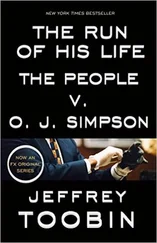≡ After Trujillo launched the 1937 genocide of Haitian and Haitian-Dominicans, you didn’t see that many Haitian types working in the DR. Not until at least the late fifties. Esteban was the exception because (a) he looked so damn Dominican, and (b) during the genocide, Socorro had hidden him inside her daughter Astrid’s dollhouse. Spent four days in there, cramped up like a brown-skinned Alice.
Neither of his daughters had any idea, were as carefree as Hobbits, never guessing the Shadow that loomed on the horizon. On his days off, when he wasn’t at the clinic or in his study, writing, Abelard would stand at his rear window and watch his daughters at their silly children’s game until his aching heart could stand it no more.
Each morning, before Jackie started her studies, she wrote on a clean piece of paper: Tarde venientibus ossa .
To the latecomers are left the bones.
He spoke of these matters to only three people. The first, of course, was his wife, Socorro. Socorro (it must be said here) was a Talent in her own right. A famous beauty from the East (Higüey) and the source of all her daughters’ pulchritude, Socorro had looked in her youth like a dark-hued Dejah Thoris (one of the chief reasons Abelard had pursued a girl so beneath his class) and was also one of the finest nurse practitioners he had ever had the honor of working with in Mexico or the Dominican Republic, which, given his estimation of his Mexican colleagues, is no small praise. (The second reason he’d gone after her.) Her workhorse-ness and her encyclopedic knowledge of folk cures and traditional remedies made her an indispensable partner in his practice. Her reaction, though, to his Trujillo worries was typical; she was a clever, skilled, hardworking woman who didn’t blink when faced with arterial spray hissing from a machete-chopped arm stump, but when it came to more abstract menaces like, say, Trujillo, she stubbornly and willfully refused to acknowledge there might be a problem, all the while dressing Jacqueline in the most suffocating of clothes. Why are you telling people that I’m loca? she demanded.
He spoke of it as well with his mistress, señora Lydia Abenader, one of the three women who had rejected his marriage offer upon his return from his studies in Mexico; now a widow and his number-one lover, she was the woman his father had wanted him to bag in the first place, and when he’d been unable to close the deal his father had mocked him as a half-man even unto his final days of bilious life (the third reason he’d gone after Socorro).
Last he spoke with his longtime neighbor and friend, Marcus Applegate Roman, whom he often had to ferry back and forth from presidential events because Marcus lacked a car. With Marcus it had been a spontaneous outburst, the weight of the problem truly pressing on him; they’d been cruising back to La Vega on one of the old Marine Occupation roads, middle of the night in August, through the black-black farmlands of the Cibao, so hot they had to drive with the windows cranked down, which meant a constant stream of mosquitoes scooting up their nostrils, and out of nowhere Abelard began to talk. Young women have no opportunity to develop unmolested in this country, he complained. Then he gave, as an example, the name of a young woman whom the Jefe had only recently despoiled, a muchacha known to both of them, a graduate of the University of Florida and the daughter of an acquaintance. At first Marcus said nothing; in the darkness of the Packard’s interior his face was an absence, a pool of shadow. A worrisome silence. Marcus was no fan of the Jefe, having more than once in Abelard’s presence called him un ‘bruto’ y un ‘imbécil’ but that didn’t stop Abelard from being suddenly aware of his colossal indiscretion (such was life in those Secret Police days). Finally Abelard said, This doesn’t bother you?
Marcus hunched down to light a cigarette, and finally his face reappeared, drawn but familiar. Nothing we can do about it, Abelard.
But imagine you were in similar straits: how would you protect yourself?
I’d be sure to have ugly daughters.
Lydia was far more realistic. She’d been seated at her armoire, brushing her Moorish hair. He’d been lying on the bed, naked as well, absently pulling on his ripio. Lydia had said, Send her away to the nuns. Send her to Cuba. My family there will take care of her.
Cuba was Lydia’s dream; it was her Mexico. Always talking about moving back there.
But I’d need permission from the state!
Ask for it, then.
But what if El Jefe notices the requests?
Lydia put down her brush with a sharp click. What are the chances of that happening? You never know, Abelard said defensively. In this country you never know.
His mistress was for Cuba, his wife for house arrest, his best friend said nothing. His own cautiousness told him to await further instructions. And at the end of the year he got them.
At one of the interminable presidential events EI Jefe had shaken Abelard’s hand, but instead of moving on, he paused—a nightmare come true—held on to his fingers, and said in his shrill voice: You are Dr. Abelard Cabral? Abelard bowed. At your service, Your Excellency. In less than a nanosecond Abelard was drenched in sweat; he knew what was coming next; the Failed Cattle Thief had never spoken more than three words to him his whole life, what else could it be? He dared not glance away from Trujillo’s heavily powdered face, but out the corner of his eyes he caught glimpses of the lambesacos, hovering, beginning to realize that an exchange was in the making.
I have seen you here often, Doctor, but lately without your wife. Have you divorced her? I am still married, Your Enormity. To Socorro Hernandez Batista.
That is good to hear, El Jefe said, I was afraid that you might have turned into un maricón . Then he turned to the lambesacos and laughed. Oh, Jefe, they screamed, you are too much .
It was at this point that another nigger might have, in a fit of cojones, said something to defend his honor, but Abelard was not that nigger. He said nothing.
But of course, El Jefe continued, knuckling a tear from his eye, you are no maricón, for I’ve heard that you have daughters, Dr. Cabral, una que es muy bella y elegante, no?
Abelard had rehearsed a dozen answers to this question, but his response was pure reflex, came out of nowhere: Yes, Jefe, you are correct, I have two daughters. But to tell you the truth, they’re only beautiful if you have a taste for women with mustaches.
For an instant El Jefe had said nothing, and in that twisting silence Abelard could see his daughter being violated in front of him while he was lowered with excruciating slowness into Trujillo’s infamous pool of sharks. But then, miracle of miracles, El Jefe had crinkled his porcine face and laughed, Abelard had laughed too, and El Jefe moved on. When Abelard returned home to La Vega late that evening he woke his wife from a deep slumber so that they could both pray and thank the Heavens for their family’s salvation. Verbally, Abelard had never been quick on the draw. The inspiration could only have come from the hidden spaces within my soul, he told his wife. From a Numinous Being.
You mean God? his wife pressed.
I mean someone, Abelard said darkly.
For the next three months Abelard waited for the End. Waited for his name to start appearing in the ‘Foro Popular’ section of the paper, thinly veiled criticisms aimed at a certain bone doctor from La Vega—which was often how the regime began the destruction of a respected citizen such as him—with disses about the way your socks and your shirts didn’t match; waited for a letter to arrive, demanding a private meeting with the Jefe, waited for his daughter to turn up missing on her trip back to school. Lost nearly twenty pounds during his awful vigil. Began to drink copiously. Nearly killed a patient with a slip of the hand. If his wife hadn’t spotted the damage before they stitched, who knows what might have happened? Screamed at his daughters and wife almost every day. Could not get it up much for his mistress. But the rain season turned to hot season and the clinic filled with the hapless, the wounded, the afflicted, and when after four months nothing happened Abelard almost let out a sigh of relief.
Читать дальше







![О Генри - Недолгий триумф Тильди [The Brief Debut of Tildy]](/books/415353/o-genri-nedolgij-triumf-tildi-the-brief-debut-of-thumb.webp)




